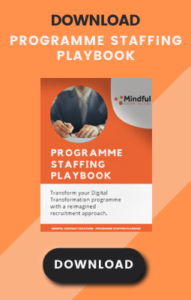How much are you spending on hiring? Astonishingly, employers in the United Kingdom spend an average of £12,000 per job – quite frankly an enormous amount.
Let’s face it, the majority of hiring decisions are made during the interview process. If you have a history of hiring the wrong people, then your interviewing approach may be the problem. Interviewers will often use their judgemental heuristics and select the candidate who is more likeable. Far too often, however, the individual lacks the appropriate skills needed for the position.
To start making the right hiring choices we suggest incorporating behavioural interviewing approaches into your recruitment process.
What is Behavioural Interviewing?
In a behavioural interview the interviewee is asked to provide examples of specific situations and then go through how they behaved in those circumstances. For example, an interviewer may ask the interviewee to “talk about a time when you worked effectively under pressure”. This is different from traditional interviews which take a free form approach and require answers to a broad set of questions.
The Benefits
The great advantage of behavioural interviewing is that it allows you to understand how someone has behaved in the past. Therefore, you can examine their behavioural intent and predict how they will perform in the future. This helps to narrow down vast pools of candidates into a select few while protecting your customers’ reputation as a good employer.
Behavioural interviewing also often leads to more objective decision making. Unlike traditional interviews, bias is avoided and feedback provided to unsuccessful candidates is more meaningful. It provides a platform for more introverted candidates to display their skills and experiences which they may find difficult to express in a more traditional interview setting.
At Mindful, we often have requirements for similar skills at different stages of our customers’ programme. Our feedback to rejected candidates is objective and evidence-based. As a result, most rejected candidates don’t hesitate to apply again. This is fantastic for our customers.
Examples of Behavioural Interviewing
Tell me an example from your work experience where you had to be creative? Followed by, what did you like about it?
The first question reveals if the candidate is naturally creative and, if applicable, what drives their creativity. Is the creativity of a candidate driven by their past failures or their need for achieving an impossible goal? The follow-up question then reveals if the individual has a “person” or a “thing” orientation.
Tell me an example of a challenge you encountered at work and how you went about it?
This question reveals what the interviewee regards as a challenge. For example, is it the actions of another person, matters concerning oneself, or instead, a situation or circumstance outside of anyone’s control? The body language of the interviewee is important to notice at this point. Do they desist challenges, find them overwhelming, or instead relish them?
Interestingly, many of the benefits of behavioural interviewing come from follow-up questions. For example, once the interviewee identifies a result they achieved, a great question to ask is:
Why achieving that result was important?
Answers to this question can often suggest a pattern. For example, the interviewee prefers to work towards something, i.e. a goal, or instead, away from something, i.e. a problem.
Final Thoughts
We are strong proponents of behavioural interviewing as it avoids bias and ensures that only talented individuals are recruited. To ensure fairness, all our candidates are informed on the competencies and areas that will be subject to questioning, as well as of the style of interviewing. This allows candidates to have pre-selected the specific situations which they can talk about in respect of each competency.
At Mindful we own your staffing and conduct behavioural interviews on your behalf. Visit our how we work page to discover how you can procure us as your Managed Service Provider.


